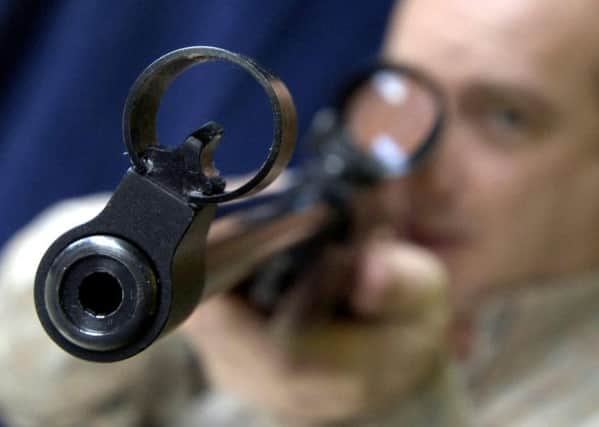Comment: Airguns are not a licence for cruelty


Shockingly, this happened to a swan in Scotland and is just one example of harrowing airgun attacks on animals dealt with by the Scottish SPCA.
The female bird, a much-loved swan known affectionately by locals in her West Lothian area as Edna, was brutally targeted along with her partner Eck, who was found with four airgun pellets inside him. Remarkably, their cygnet escaped unharmed, although he was visibly terrified after watching his parents being shot at so many times.
Advertisement
Hide AdAdvertisement
Hide AdAgainst all odds, Edna and Eck made a full recovery after being treated by vets and our expert wildlife rescue team and we were later able to release them back into the wild along with their cygnet.
Sadly, this was not an isolated incident.
Another family of swans had been the target of an airgun attack in Cumbernauld in North Lanarkshire just two months earlier.
When our officers arrived at the scene they found a male bird covered in blood after being shot in the side of his head.
An X-ray revealed an airgun pellet lodged in his spine and, due to the severity of his condition, he had to be put to sleep on veterinary advice.
This was a particularly upsetting case as the swan’s partner and seven cygnets remained pining on the loch.
It is appalling that animals are being targeted and caused such pain and suffering. Wild animals and cats are the most common victims in our experience.
In one example of the kind of thing that can happen, Blackie the cat was incredibly lucky to survive after being shot between the eyes in a sickening attack in Fife not long ago.
If the pellet had hit Blackie one centimetre to the left or right, it could have resulted in brain damage – or even in death.
Advertisement
Hide AdAdvertisement
Hide AdClaud, a 13-year-old cat from Falkirk, was not as fortunate as Blackie when he was shot in the head a horrifying seven times. Tragically, after bravely finding his way home to his distraught owners, he died of his injuries.
We believe the person who attacked Claud may have contained him in a confined space before carrying out the shooting as it is very unlikely that the perpetrator would have been able to hit him so many times without him running away.
It is hard to comprehend the terror and pain these cats and swans endured and no animal should ever have to suffer like they did.
Yet these attacks are just the tip of the iceberg and we continue to deal with cases like this every year.
Worryingly, many of the incidents reported to us have taken place in highly populated, residential areas.
We also believe that many more airgun incidents go unreported because the bodies of the animals are never found.
It is estimated that there are as many as half a million air weapons in Scotland and too many of these are getting into the wrong hands.
Disturbingly, some people think it is fun to maim and kill defenceless animals with airguns and this is completely unacceptable in a modern, civilised society.
Advertisement
Hide AdAdvertisement
Hide AdHow anyone can derive pleasure from such cruel behaviour is beyond belief and those who behave in this manner should not be allowed to possess such a dangerous weapon.
The Scottish SPCA is a pragmatic organisation and accepts that there are people who use airguns legitimately and within the law.
Therefore, we welcome the Scottish Government’s plans to introduce an airgun licensing scheme, which would not ban airguns outright, but ensure they are only used responsibly and lawfully.
The proposals would also ensure there is appropriate enforcement of the new legislation as well as suitable penalties for those who misuse airguns.
It will be interesting to see which organisations oppose this rational proposal, given that anyone with a lawful purpose would still be allowed to own an airgun.
Evidence for and against the licensing of airguns is currently being submitted to the Local Government and Regeneration Committee at Holyrood, before a recommendation is made to the Scottish Parliament on whether the scheme should go ahead.
If it does, this will be a welcome step forward for animal welfare in Scotland, which will send out a strong message that mindless acts of violence using airguns will not be tolerated.
• Mike Flynn is the chief superintendent of the Scottish SPCA www.scottishspca.org